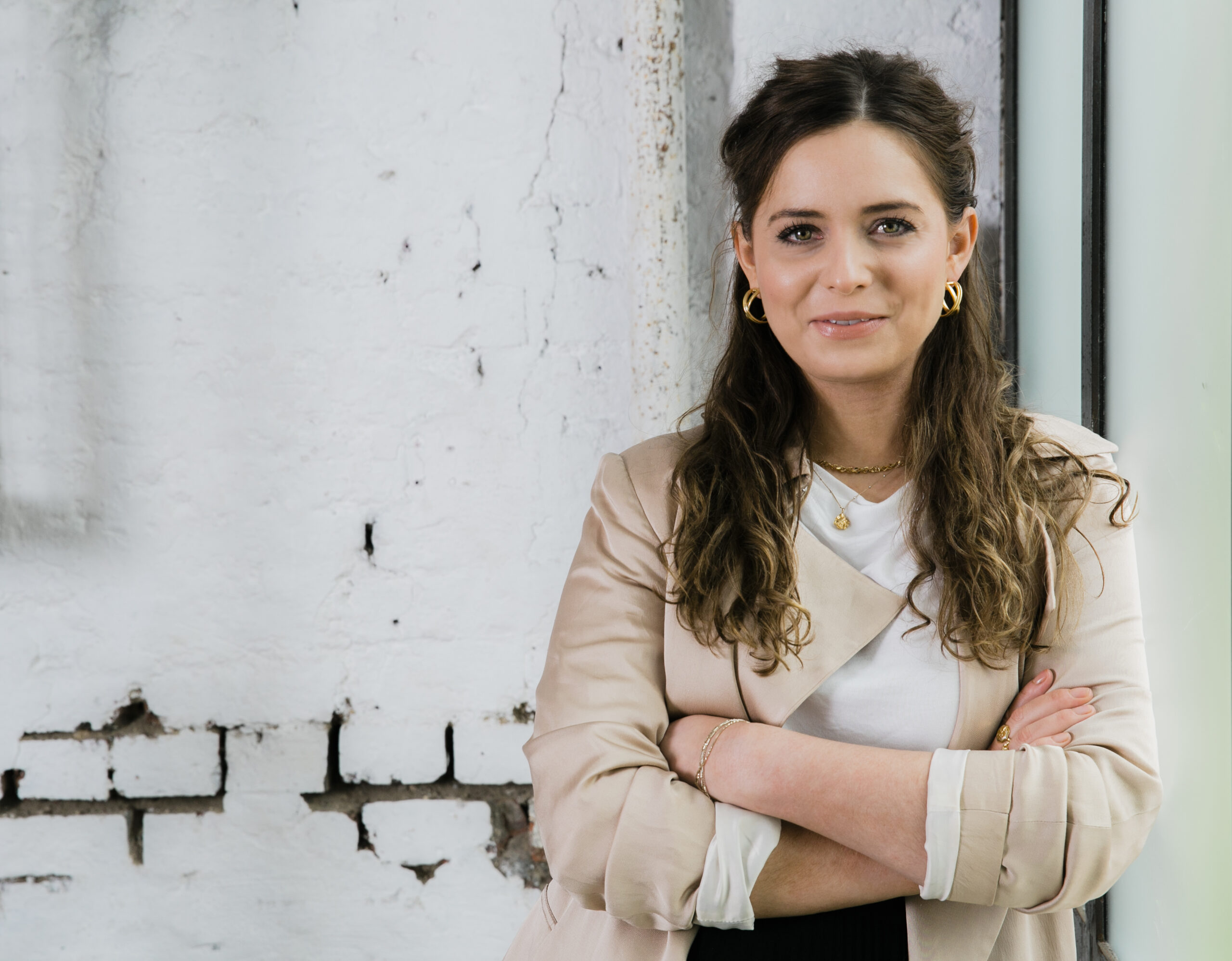
For Ilana Wisby, founding CEO of Oxford Quantum Circuits, the draw to quantum science wasn’t just the entrepreneurial lure of heading up a company in an exciting new technological space. For Wisby, quantum represents an important scientific step toward humanity’s ability to understand nature itself.
“I’m most excited about quantum computing applied to understanding nature,” said Wisby. “Quantum computing enables us to think about and understand mother nature herself, how she operates, every molecule in the world ultimately interacts through quantum mechanics and you fundamentally can’t simulate with classical computers.”
The power to understand nature at this level is accompanied with a responsibility to use that deep understanding for good and to use it for all of humanity, she said. Wisby believes in both the power of quantum technologies to help change humanity for the better, as well as the power of humanity to guide quantum technologies so that these devices can be leveraged to help the most people in responsible ways.
“I would not be doing this job and committing my life and my work to this, if I didn’t think it was net positive,” said Wisby.

Wisby has a doctoral degree in quantum physics from Royal Holloway University of London and was placed in industry at the National Physical Laboratory. She was an early quantum champion and an early believer in its ability to improve science and society, a calling that returned her to the field and into the budding quantum industry.
“After I left academia, I started to learn more about the impact that quantum could have on our economies, our societies and on people’s lives. It also became obvious that quantum had the opportunity to give businesses and their operations an uncontested competitive edge,” said Wisby. “Not many people can say that their work will change the world, but doing what we do here we absolutely can.”
In order to change the world, we have to understand it, according to Wisby. She adds that it’s quantum computing’s ability to take scientists deep into the bedrock of nature that may be quantum’s biggest benefit.
Beyond its use as a tool for sheer scientific discovery, she also sees quantum computers will initially impact certain fields and industries, such as the pharmaceutical industry. Pharmaceutical scientists and medical researchers could tap the power of quantum computers to look at how molecules react, understand protein folding and speed up drug discovery to deliver new drugs and treatments to people in need.
 Being Mindful With Technology
Being Mindful With Technology
Wisby said it’s easy to get caught up in the promise of transformative technologies and fail to consider their possible drawbacks. Like nuclear research spawned a massively powerful source of energy and a massively destructive category of weapons, quantum could spin its own tale of two technologies.
“Of course, with any new type of technology, it can be used as a force for good or to exert a negative influence on the world,” said Wisby. “We need to be mindful of that risk from the beginning. We need to look back on history and learn from previous technological revolutions. And we need to agree principles to enable us to make the right, considered choices and take strong stances early on.”
Quantum computing’s potential to break encryption is another risk that requires study and thoughtful solutions.
As someone who is concerned with equity and inclusion in technology, Wisby emphasized that quantum technologies should not be exclusive, which means there should be a concerted effort to make this advanced technology available to as many people as possible, as well as making sure that the quantum workforce is diverse.
“I fully recognize that even I, with my PhD and my background, come from a position of privilege,” said Wisby. “Whilst I am one of only three women leading quantum companies around the world, and as such I am very much part of a minority, my white, UK-educated background gives me opportunities still inaccessible to others. This is why it is so important for me to use my position to voice concerns, change the narrative, drive not only the commercial or technical aspects of quantum, but also the societal impacts of it. As an industry we must do more to open up opportunities irrespective of one’s background or socioeconomic status, so that the quantum ecosystem and impact is accessible to all.”
Quantum Nationalism
Quantum nationalism — the efforts of countries to dominate the technology — could impact this accessibility and that diverse perspective, Wisby said.
“There is a critical conversation to be had around the countries, or the regions that do have quantum technology and those that don’t — and what that means in terms of power, in terms of money, in terms of applications, today and for the future” said Wisby. “These discussions should be had now, taking different perspectives into account, and voices that we might not have typically expected to be talking to about quantum before, as to ensure quantum technologies for all, we need input from all.”
Wisby actively consults for organizations on quantum impact. She is engaging with the World Economic Forum on the potential of quantum technologies and the need for quantum ethics. She also advises Cyber Security Councils, various governments and the UN.
She is optimistic that this drive to pave an ethical path toward the use of quantum technologies will be successful. Much of the groundwork has already been laid, Wisby added.
“We’ve learned a lot from even the most recent revolution of tech with AI. People are a lot more aware now with data than we were 10 years ago. With quantum technologies, if we act now, together, we have a unique chance to mitigate and avoid those potential unknowns turning negative.”
If you found this article to be informative, you can explore more current quantum news here, exclusives, interviews, and podcasts.














